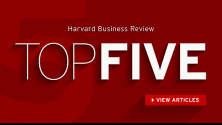As remote work increasingly becomes the norm, more organizations are expected to embrace a distributed workforce model for the long term, even post-COVID. Here are a few ways that remote work will shake up individual lifestyles, business operations, and functional areas like human resources.
1. A hybrid model
Adoption of a hybrid work model, a combination of remote work and onsite work, will continue to increase in the post-COVID world. While some employees will prefer to skip the commute and work from home full-time, citing greater productivity, flexibility, and location independence, others will opt to return to the office for advantages such as face-to-face interactions with peers. Some organizations may also adopt a model where employees are required to come to the office only a few days a week, for example.
2. Hub-and-spoke offices
The hub-and-spoke workspace may also gain traction. In this model, organizations retain a central headquarters (hub) for periodic team gatherings and strategy discussions, and a network of small satellite offices across various other locations.
[ Want more advice? Read also: How to get a job during COVID-19: 9 smart tips. ]
This model promises a two-way benefit. The smaller offices substantially reduce operational costs while also enabling employees to work in an office that’s closer to where they live. This ensures a true revitalization of tier-two and tier-three locations as more businesses come to realize that they need not be based in a metropolitan area.
3. HR tech
The use of cloud-based HR technologies will increase as companies seek to provide a seamless employee experience for those who work remotely, helping them stay engaged and productive. These tools can be used to facilitate virtual hiring, onboarding, learning and development, performance management, smart decision-making, and more.
4. Remote hiring
The way that organizations hire new employees changed drastically in 2020. In-person interviews were quickly replaced by videoconferences. According to a LinkedIn survey, 74 percent of organizations in the APAC region will continue virtual hiring in the post-COVID world.
While many companies will likely fall back on the traditional “test followed by interview” model of evaluating job applicants, this approach will prove ineffective in the remote-first world. The focus will shift instead to evaluating a candidate’s capabilities as demonstrated by their contributions to open source technology platforms, YouTube, Instagram, Medium, Facebook, Twitter (for marketing and content writing), and Dribble (for user interface design).
Soft skills like communication, collaboration, teamwork, and adaptability will be given more importance while evaluating applicants.
Diversity and inclusion will become an integral part of the recruitment strategy, and remote work will enable many organizations to improve their workforce diversity.
From the applicant’s perspective, top talent will look for companies that offer remote work, flexible policies that enable more family time and a lower cost of living, and excellent health coverage. Perks like gourmet cafeterias, gyms, game rooms, nap pods, and unlimited free snacks will lose their appeal.
[ Can you ask for a raise during a pandemic? Yes. Read: How to ask for a raise during COVID-19. ]
5. Changing performance assessment trends
Remote work has changed performance management considerably. Organizations will increasingly focus on what matters most: work done instead of hours worked, and missions accomplished instead of tasks completed.
Some companies are making performance reviews ongoing rather than annual. Continuous feedback will become essential to manage employees, and this in turn will help remote workers navigate their job responsibilities smoothly and meet performance expectations. Rethinking how we set goals and identifying the most important performance metrics will be essential to manage others in the new normal.
A multi-gig economy is poised to become a reality post-pandemic. As geographic ties to a physical workplace disappear, more and more skilled professionals will be tempted to take on multiple working engagements – one that pays the bills, for example, and another that stokes their passion.
[ In this remote era, get exercises and approaches that make disparate teams stronger. Read the digital transformation ebook: Transformation Takes Practice. ]







